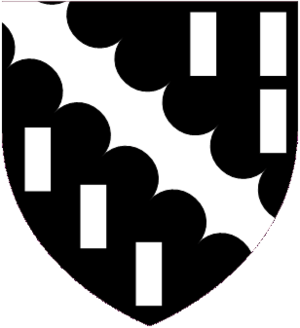William Alington (speaker) facts for kids
William Alington was an important person in England a long time ago. He lived in places called Bottisham and Horseheath in Cambridgeshire. He held many big jobs, like being the Speaker of the House of Commons of England. He was also a treasurer in Ireland and Normandy, and a High Sheriff in his home county. He died on October 19, 1446.
William Alington's Life and Career
William Alington was the son of William Alington and Denise Malet. He married a woman named Joan, who passed away in 1446.
William Alington became the High Sheriff of Cambridgeshire and Huntingdonshire in 1414 and again in 1423. A High Sheriff was a very important local official, like a chief law enforcement officer for the county.
He was also chosen to be a Member of Parliament for Cambridgeshire in 1410, 1416, and 1429. In 1429, his fellow Members of Parliament elected him to be the Speaker of the House. The Speaker is like the leader of the House of Commons meetings.
Alington was a special advisor, called a Privy Councillor, to two kings: King Henry IV and King Henry V.
He was very close to King Henry V's younger brother, Thomas of Lancaster, Duke of Clarence. This duke was in charge of Ireland from 1404 to 1413. William Alington went with him to Ireland and became the Lord Treasurer of Ireland. This meant he was in charge of the money for the government in Ireland. Later, he also worked in Normandy, which was a part of France controlled by England at the time. There, he held other important money-related jobs.
Alington Family Connections
William Alington had two sons, named William and Robert. Both of his sons married daughters of a famous knight, Sir John Argentyne. Sir John lived at Great Wymondley Manor in Hertfordshire.
Through these marriages, William Alington the younger gained control of the Wymondley manor. This manor had a very special duty called "Grand Sergeanty". This duty meant that the lord of Wymondley Manor had the honor of presenting the first cup to the King of England at his Coronation ceremony. This special tradition continued for many centuries.
 | Bessie Coleman |
 | Spann Watson |
 | Jill E. Brown |
 | Sherman W. White |


